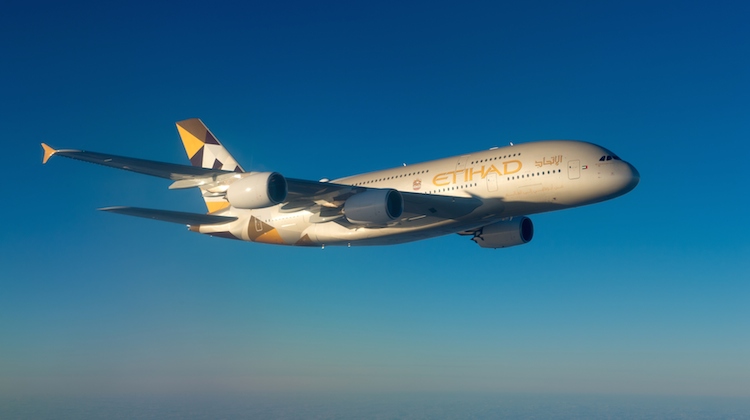
Abu Dhabi-based carrier Etihad has announced it will continue to scale down its operations and focus on becoming a mid-sized, full service carrier.
With the announcement, Etihad has streamlined its organisational structure and removed a number of senior executive roles, announced employee layoffs, and said it will concentrate future operations on its wide-body fleet.
It is not yet known what the future holds for the airline’s fleet of 30 narrow-body Airbus A320 jets after the restructure.
Etihad has also said it may retire its current 10 Airbus A380s due to the ongoing impact of the pandemic, suggesting the airline will shift its attention to its 25 Boeing 777s and 39 787 Dreamliners.
Earlier this week, Etihad CEO Tony Douglas announced a major corporate restructure, that saw the business shed a number of executive roles including its chief commercial officer, its senior vice president of sales and distribution, and its chief risk and compliance officer.
“After our best-ever Q1 performance, none of us could have predicted the challenges that lay ahead in the remainder of this year,” Douglas said.
“As a responsible business, we can no longer continue to incrementally adapt to a marketplace that we believe has changed for the foreseeable future.
“That is why we are taking definitive and decisive action to adjust our business and position ourselves proudly as a mid-sized carrier.
“The first stage of this is an operational model change that will see us restructure our senior leadership team and our organisation to allow us to continue delivering on our mandate, ensuring long-term sustainability, and contributing to the growth and prominence of Abu Dhabi.”
Following the announcement, Etihad also warned its 2,000 pilots of looming immediate compulsory lay-offs.
“The hard reality is that, despite all hopes, our industry is simply not recovering quick enough and we will continue to be a much smaller airline for some time,” the email said.
“Based on all these factors, it has become clear that we have no choice but to further reduce our workforce.”
Pilots were told in the email that “a variety of other options” tried by the airline were not enough to keep the business strong and that its current workforce was “simply too large.”
Aviation analyst Brendan Sobers was not surprised by the revelations, noting that Etihad “had already become smaller” in its operations even before the COVID-19 pandemic hit.
While several airlines are restructuring and streamlining their operations to deal with the impact of the COVID-19 pandemic, in Etihad’s case the changes will be “more permanent,” said Sobers.
Last week, Etihad officially moved one of its Airbus A380s into long-term storage in Tarbes, France, joining a long line of airlines pressing pause on their four-engine fleets.
While Etihad has hinted at a premature retirement for its A380 fleet, and entirely removed its four-engined superjumbos from its schedule, there has been no official retirement announcement on any of its current A380 aircraft.




